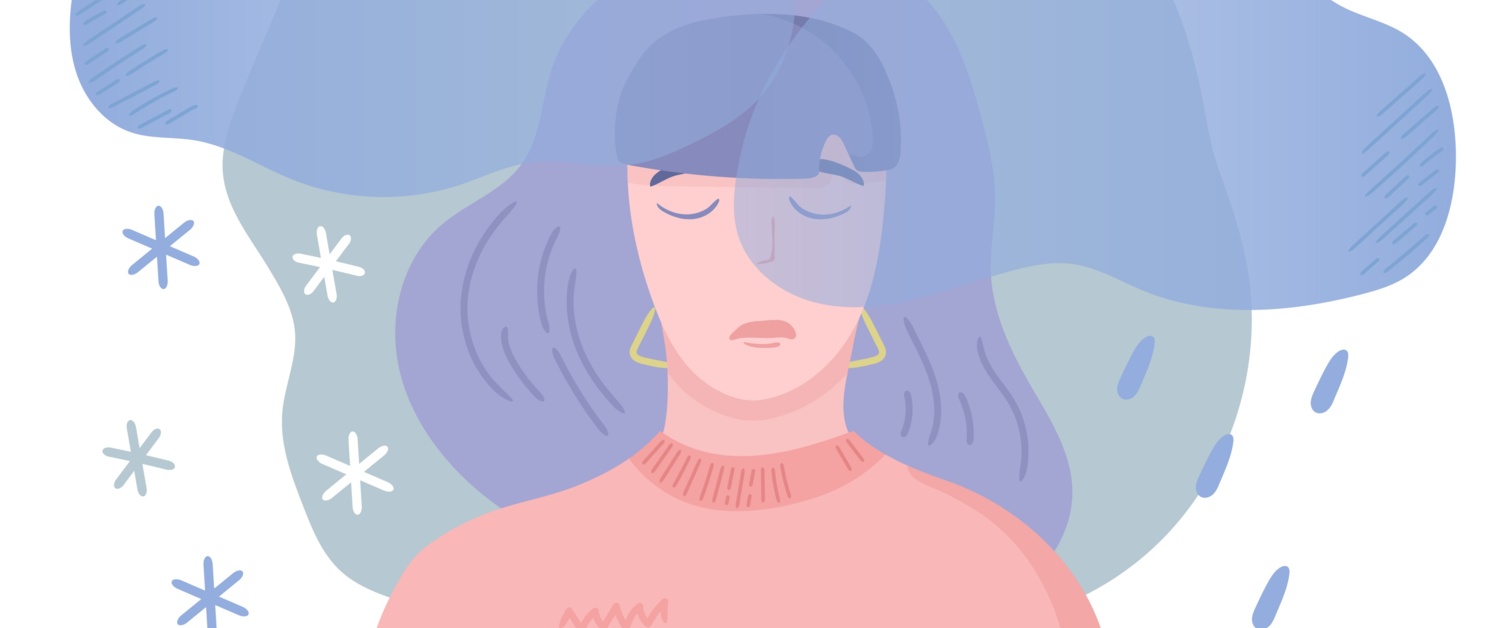Understanding Seasonal Affective Disorder
- foster care rights, my rights
- Resources for Teens and Young Adults
I love the summer—children are outside playing or eating ice cream, and many people are spending time with friends and family, at the beach, or on vacation with no cares or worries. They are taking a break from the regular routine of life!
Similarly, the holidays are a time to celebrate and spend time with friends and family too. After all, it is winter break. As friends and family come together for holidays such as Thanksgiving, Hannukah, Christmas and Kwanzaa—it is very similar to summer in that way. As much as I love spending time with my friends and family during winter months, I find myself feeling very tired even when I get enough sleep, eat right, and work out. Many days, I just want to stay in bed, and I even become a little more irritable. I just feel less motivated overall. I noticed that I struggle more in school during the fall than in the spring. I’ve always wondered if I could enjoy these activities in the summer—what is so different about the winter?
After doing research I realized I suffer from SAD, and you might too.
Have you ever noticed that when the weather changes, you experience a slight change in mood? If you’ve been feeling down and sad for no reason don’t worry - it’s totally normal. You probably have a case of the winter blues aka Seasonal Affective Disorder (SAD). Changes in the weather, and daylight savings time can impact a person’s mood and functionality.
What is Seasonal Affective Disorder?
Seasonal affective disorder (SAD) is a type of depression that's related to changes in seasons. SAD begins and ends at about the same times every year, usually around the time of daylight savings when the days get shorter. If you're like most people with SAD, your symptoms tend to start in the fall and continue through the winter months.
What does it do? Why does it happen?
People who have SAD struggle to adjust to the seasonal changes (like how long the day is). This can change our sleep, mood, and how we act. You might feel more tired, and moody. These symptoms usually resolve during the spring and summer months.
The lack of sunlight stops a certain hormone called melatonin from being made in our brains.
Melatonin is what helps our bodies realize that it’s time to go to sleep and helps us to stay asleep.
People that live in areas of the world where the sun shines less are at higher risk than other people who live in areas where there is more sunlight. In New York, for example, people are more likely to develop Seasonal Affective Disorder than other states such as Georgia or Florida, where the sun shines more often.
But there are ways to combat these feelings and it’s very important to know that you’re not alone. In fact, 4-6% percent of people have winter depression. SAD impacts women more than men and affects people between the ages of 18-30 the most.
Ideas to combat SAD:
-
Therapy. There are different types of therapy that you can try: Light therapy aka a light box, psychotherapy, cognitive behavioral therapy. Ask your guardian if you are interested in beginning therapy so they can help you get in contact with a licensed professional.
-
Medications like antidepressants. Make sure you talk to your doctor to make sure this is the right decision before you start taking them.
-
Aromatherapy. You can get a diffuser and essential oils at a local store like Walmart. Diffusers range from $10-$20.
-
Stick to a schedule. Start planning your days and organizing what your day will look like. Try to prioritize what you need to do, schedule a time to eat and what to eat, schedule time to exercise, and of course, schedule time to sleep. You can buy a planner or even use the Calendar app on your phone.
-
Exercise. 20-30 minutes a day of physical activity of your choice can make a big difference!
-
Read to stimulate your mind.
-
Let the sunshine in and open the blinds to try to get a little sun.
-
Take Vitamin D.
-
Keep a journal or another form of a creative outlet.
-
Surround yourself with plants.
If you find yourself feeling different than usual in the winter months, consider your resources and remember you are not alone! Prioritize your mental health and surround yourself with things that make you happy. This can look different for everyone, but the important thing is that you take small steps towards improving your mental state.
Resources:
-
Mayo Foundation for Medical Education and Research. (2021, December 14). Seasonal affective disorder (SAD). Mayo Clinic. Retrieved November 22, 2022, from https://www.mayoclinic.org/diseases-conditions/seasonal-affective-disorder/symptoms-causes/syc-20364651
-
Seasonal affective disorder. American Family Physician. (2000, March 1). Retrieved November 29, 2022, from https://www.aafp.org/pubs/afp/issues/2000/0301/p1531.html
-
Care, B. A. Y. A. D. A. H. H. (n.d.). It's a sad time of year: Understanding Seasonal Depression. Be Healthy Blog. Retrieved December 2, 2022, from https://blog.bayada.com/be-healthy/its-a-sad-time-of-year-understanding-seasonal-depression
-
4 simple ways to beat the Winter Blues in New York City. 4 Simple Ways To Beat The Winter Blues In New York City: Healthy Minds NYC: Adult Psychiatrists. (n.d.). Retrieved November 28, 2022, from https://www.healthyminds.nyc/blog/4-simple-ways-to-beat-the-winter-blues-in-new-york-city
